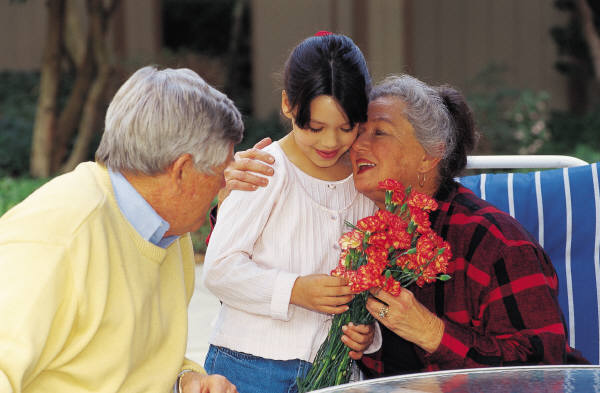AARP Hearing Center

Let’s face it: grandparents of today are different. No longer is “Grandma” only thought of as an elderly woman knitting sweaters in her rocking chair while cookies bake in the oven. Similarly, “Grandpa” provokes more than the image of a grumpy old man reading the newspaper in his favorite recliner. Modern-day grandparents are not only living longer and healthier, but they are also remaining more active, learning new technologies and celebrating their ‘second lives.’
At the same time, however, an increasing amount of grandparents are also beginning their second round of parenting. As of 2010, 2.5 million older Americans across the nation reported being both the householder and caretaker to their grandchildren. Over 15% of these “grandfamilies” live in Florida. In fact, 8.9 percent of Floridian children (age 17 and younger) live under their grandparents’ roof.
Grandfamilies face a variety of obstacles, many of which can be legal. Though some grandparents may want to avoid entering the legal system or confronting the child’s parents, it’s important to remember that caregivers without a formal legal relationship with their grandchildren are often denied rights necessary for parenting, like obtaining medical care for a child or enrolling him/her in school.
Currently, the Florida legal system includes 22 laws affecting grandfamilies. The abundance of legal information may seem overwhelming, but numerous laws equates to various options. Therefore, adoption is not the only way for grandparents to obtain a legal relationship with grandchildren in Florida. A terminally ill parent can appoint standby guardianship, for instance, allowing grandparents to take over the child’s day-to-day care without the parent losing his or her rights.
Another option in Florida is limited guardianship, typically given to grandparents with dementia or other conditions that affect decision-making. These guardianships grant limited rights, such as only enrolling the child in school. Floridian guardianships can also be granted by probate court, via the deceased parent’s will, or through family or dependency court.
Establishing a legal relationship is not the only hardship for grandfamilies to overcome. Although 64 percent of Floridian grandparents raising grandchildren are under age 60, 18 percent live in poverty. For some grandparents, giving up retirement or other plans to take on day care and school events can be both time consuming and costly, especially in such hard economic times. For those already retired or living on fixed incomes, gaining the enormous responsibility of raising a child may seem like an impossible task.
Fortunately, there are many resources available to grandfamilies. The AARP GrandCare Support Locator at www.giclocalsupport.org is a free tool that allows users to find local programs, services and resources designed to assist grandfamilies. Additionally, federal and state public benefits programs exist to help with food, income, home/healthcare costs and other needs for those who are eligible. To find out if a grandfamily qualifies for these programs in a free and private way, and to obtain application forms and contact information of local offices, visit www.aarp.org/quicklink
For more state-specific information about grandfamilies, please visit:
http://www.aarp.org/relationships/friends-family/grandfacts-sheets/
Related Articles:
5 Don’ts of Grandparenting
http://www.aarp.org/relationships/grandparenting/info-11-2010/goyer_grandparenting_advice.html
Keep Grandkids Safe
http://www.aarp.org/relationships/friends-family/info-09-2011/keep-grandkids-safe.html
Other Resources:
GrandFamilies Guide
http://www.aarp.org/relationships/friends-family/info-08-2011/grandfamilies-guide-getting-started.html
National Committee of Grandparents for Children’s Rights
http://www.grandparentsforchildren.org/default.asp
[Photo courtesy of: http://www.flickr.com/photos/jwthompson2/]































































